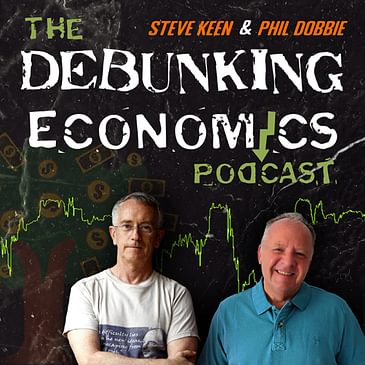Should we tax wealth more? The UK’s Shadow Chancellor Rachel Reevs wouldn’t be drawn o the question at an FT forum recently. She said the UK is already a high taxing country. But around the world the wealthy are getting wealthier. Is that a bad thing? Some would say that if they are making money creating growth for the economy, then why would you want to stop them. Jeff Bezos, for example, makes a small fraction of the wealth of the economic benefit he has created for broader society. But does it make sense that income from wealth – primarily capital gains – is taxed less than I come from work? No, says Steve Keen. It should be the other way round. Listen in for a discussion about taxing wealth, that’s a little more nuanced than just saying tax the rich.
Hosted on Acast. See acast.com/privacy for more information.

